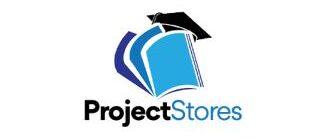ABSTRACT
This study examines the impact of social media language on the academic performance of secondary school students in Lagos State, Nigeria. Utilising a descriptive survey research design, data was collected from 100 students across five public secondary schools.
The findings reveal that high engagement with social media correlates with negative effects on students’ writing proficiency, spelling abilities, and overall academic performance.
The study highlights the unconscious transfer of informal social media writing conventions to formal academic writing, leading to errors in grammar, punctuation, and spelling.
Thus, this study recommends that students should spend more time on productive academic engagements than merely just interacting with friends on social media; educators should make their presence on social media be felt by introducing interactive sessions online which will engage students like virtual classrooms where they can discuss topics that are of interest and or that students have difficulty with; and students should be encouraged to write formal English while chatting.
TABLE OF CONTENTS
TITLE PAGES
Title page
Certification ii
Dedication iii
Acknowledgement iv
Abstract v
Table of contents vii
CHAPTER ONE: INTRODUCTION
- Background to the Study 1
1.2 Statement of the Problem 4
1.3 Research Objectives 5
1.4 Research Questions 5
1.5 Significance of the Study 6
1.6 Scope of the Study 6
1.7 Limitations to the Study 7
1.8 Operational Definition of Key Terms 7
CHAPTER TWO: LITERATURE REVIEW
2.0 Introduction 9
2.1 Brief History of Social Media 9
2.2 Adolescents’ Use of Social Media in the Nigerian Context 12
2.3 Language Use on Social Media in the Nigerian Context 14
2.4English Language in Nigerian Secondary Schools 17
2.5 Basic Language Skills 19
2.6 Challenges of Teaching and Learning the English Language in Nigerian Secondary Schools 21
2.7 Effects of Social Media on Students’ Academic Performance 25
2.8 Theoretical Framework: Cultivation Theory 27
2.9 Review of Empirical Studies 29
2.4 Appraisal of Literature Review 32
CHAPTER THREE: RESEARCH METHODOLOGY
- Introduction 34
3.1Research Design 34
3.2Population of the Study 34
3.3Sample and Sampling Techniques 35
3.4Instrumentation 35
3.5Validity of the Instruments 36
3.6Reliability of Instruments 36
3.7Procedure for Data Collection 36
3.8 Method of Data Analysis 36
CHAPTER FOURDATA ANALYSES AND PRESENTATION
4.1 Descriptive Analysis of the Demographic Information of Respondents 37
4.2 Home Language Distribution of Respondents 38
4.3 Age Distribution of the Respondents 39
4.4 Analysis of Responses Based on Research Questions 39
4.5 Summary of Findings 45
CHAPTER FIVE: DISCUSSION, CONCLUSION AND RECOMMENDATIONS
5.1 Discussion 47
5.2 Summary of Findings 51
5.3 Conclusion 52
5.4 Recommendation 53
Reference 55
Appendix 59
CHAPTER ONE
INTRODUCTION
Background to the Study of the impact of social media language on academic performance
The rapid advancement of technology has led to the integration of social media tools into both social and academic settings. These platforms offer unique opportunities for language learning beyond traditional classroom environments, providing real language interactions and meaningful engagement (Al-Jarrah et al., 2019). The prevalence of social media usage, especially among secondary school students, raises concerns about its effects on their language skills.
While social media can be a valuable resource for education, it also introduces informal language patterns, abbreviations, and non-standard orthography that might impact writing proficiency and academic performance (Fatimayin, 2018; Ravhuhali et al., 2015).
The advent of the internet, along with the proliferation of information and communication technology (ICT) and the widespread use of smartphones, has opened up a world of possibilities for individuals to tap into this digital revolution.
In Nigeria, we have a plethora of social networking platforms at our fingertips, including Facebook, Skype, Twitter, Instagram, WhatsApp, TikTok, and good old SMS. Engaging with these social media platforms allows people to connect with others, access and share information, collaborate on tasks and projects, engage in discussions and chats, work together on various endeavors, and build professional networks.
When harnessed effectively, social media platforms can serve as valuable resources for educational endeavors, as suggested by Freeman (2016). Similarly, Bright (2014) posits that social networks can serve as valuable hubs for English language education. Akinjobi (2013) also advocates for exploring social networking sites as supplements to classroom activities.
On a related note, Yunus and Salehi (2012) in Fatimayin (2018) propose that the use of Facebook pages can enhance students’ proficiency in English.
Fatimayin (2015) emphasizes the dual nature of social media, where it can accommodate both our social and educational aspects of life. It can be a tool for facilitating teaching and learning, as well as a means of social interaction.
However, she also points out that social media comes with its fair share of drawbacks. One of these drawbacks is its influence on the spelling and writing habits of secondary school students. Additionally, it has the potential to affect students’ time management skills, study habits, and their tendency to replicate incorrect concepts.
According to research by Paul and Gelish (2011), the use of mobile phones for texting and accessing social media may or may not be linked to a decline in academic performance among students. Both students and adults frequently turn to social media platforms like Facebook and Twitter to seek information, connect with new acquaintances, and engage with family members.
Social media’s platform allows students to access e-books, conduct online research, communicate with people across the globe, and find solutions to challenging coursework. Moreover, students can share their study challenges with friends on Skype and Facebook, seeking solutions to their academic difficulties.
Nonetheless, the constant exposure to informal writing styles and unconventional language usage on social media can adversely impact students’ writing skills. The consistent use of abbreviations and the absence of grammatical rules in online communication can easily seep into students’ writing, especially those with average or below-average skills.
Furthermore, there’s a risk of students becoming lax in their writing due to the prevalence of word and sentence abbreviations encouraged by social media (Fatimayin, 2018).
In fact, this issue may be connected to the reported poor performance of Nigerian students in WAEC examinations, as highlighted in a National Mirror article from November 16, 2015. Abimbola Adegboye concurred that this problem might be attributed to the increasing hours students spend on social networking sites, where they communicate using “special forms and abbreviations” of the English language.
Supporting these findings, a study conducted by Ravhuhali, Baloyi, Mutshaeni, and Mashau (2015) revealed that learners tend to be addicted to social networking sites, and their use of the English language is influenced by their interactions on these platforms.
This perspective aligns with the observations made by WAEC examiners in preparation for the 2020 WAEC examination, as reported in The Independent newspaper on February 19th.
The examiners noted issues such as poor paragraphing, inadequate expression due to incorrect usage, punctuation errors, tense inconsistencies, and problems with prepositions and articles.
Additionally, candidates struggled with constructing simple and accurate sentences, often failing to grasp the requirements of certain questions. Other concerns included the misuse of personal pronouns, insufficient word counts in essays, illegible handwriting, the use of SMS language, spelling errors, and a lack of fundamental knowledge of English grammar.
Instances of mindlessly copying answers from passages further compounded the problem.
Furthermore, candidates’ inability to summarize concepts in their own words indicated a lack of understanding and critical thinking skills. These challenges not only hinder effective communication but also reflect poorly on the overall competence and professionalism of the candidates.
It is crucial for students to demonstrate a strong command of the language, adhere to proper grammar usage, and convey their ideas clearly and concisely. Failure to do so can significantly diminish the credibility and effectiveness of their work. Given this context, this study aims to investigate the impact of students’ adoption of language encountered on social media platforms on their academic performance in English within secondary school settings.
1.2 Statement of the Problem
The language used on social media platforms can influence students’ writing skills and academic performance, leading to errors in grammar, spelling, and communication. The increasing exposure to informal language patterns and abbreviations poses challenges for students in adhering to conventional writing standards.
To address these issues, there is a need to examine the relationship between social media language usage and its impact on secondary school learners’ academic performance in English.
1.3 Research Objectives
This research aims to achieve the following objectives:
- To assess the extent of social media language usage among secondary school students in the Ojo Local Government Area.
- To investigate the effects of social media language on the language proficiency of secondary school students, specifically focusing on grammatical accuracy.
1.4 Research Questions
The study will address the following research questions:
- What is the prevalence of social media language usage among selected secondary school students in the Ojo Local Government Area?
- What factors contribute to the high usage of social media language among secondary school students?
- How does exposure to social media language impact the writing proficiency of secondary school students, particularly in terms of grammatical accuracy?
- How does the terminology used on social media platforms affect the spelling abilities of senior high school students?
- What are the broader effects of social media on the academic performance of secondary school students?
1.5 Significance of the Study
The findings of this study will contribute to a better understanding of how social media language usage affects students’ language skills and academic performance. Educators will benefit from insights into addressing language-related challenges arising from students’ exposure to social media language. Furthermore, individuals can benefit from the study as it can help them understand how to separate social media language from formal writing. This research will add to the existing knowledge base and guide future studies in the field.
1.6 Scope of the Study
The study focused on secondary school students from five schools in the Ojo Local Government Area of Lagos State. Both students and English language teachers will participate in the research. The study employed a Likert-scale-based survey to investigate the frequency of social media language usage in academic work and its potential influence on language skills and academic performance.
1.7 Limitations to the Study
The research is limited by its focus on a specific geographical region and may not capture the diversity of language groups present in the area. The influence of participants’ home languages on their language skills may also impact the results. Additionally, limited funding could hinder access to relevant materials and data collection.
1.8 Operational Definition of Key Terms
Social Media: For the purposes of this study, “social media” refers to digital platforms and applications such as Facebook, Twitter, Instagram, TikTok, and WhatsApp, where users can create profiles, share content, engage in social interactions, and communicate through text, images, videos, and other multimedia elements.
Academic Performance: In this study, “academic performance” pertains to the assessment of a student’s educational achievements and abilities in the context of English language studies.
Informal Writing Styles: “Informal writing styles” are characterized as non-standard language usage and communication patterns commonly found on social media platforms like abbreviations and slang.
Abbreviations: “Abbreviations” refer to shortened forms of words or phrases commonly used in social media communication, such as “u” for “you,” “4” for “for,” or other similar shorthand representations.
Language Influence: In this study, “language influence” signifies the impact of informal language usage encountered on social media platforms on students’ writing skills, including spelling, grammar, punctuation, and overall language proficiency.
Digital Addiction: “Digital addiction” is defined as an excessive and compulsive use of social media and digital devices to the extent that it interferes with daily life, academic activities, and social interactions.
English Language Education: “English language education” refers to formal instruction and learning activities aimed at developing students’ English language proficiency, encompassing listening, speaking, reading, and writing skills, typically conducted in classroom settings.


Be the first to comment